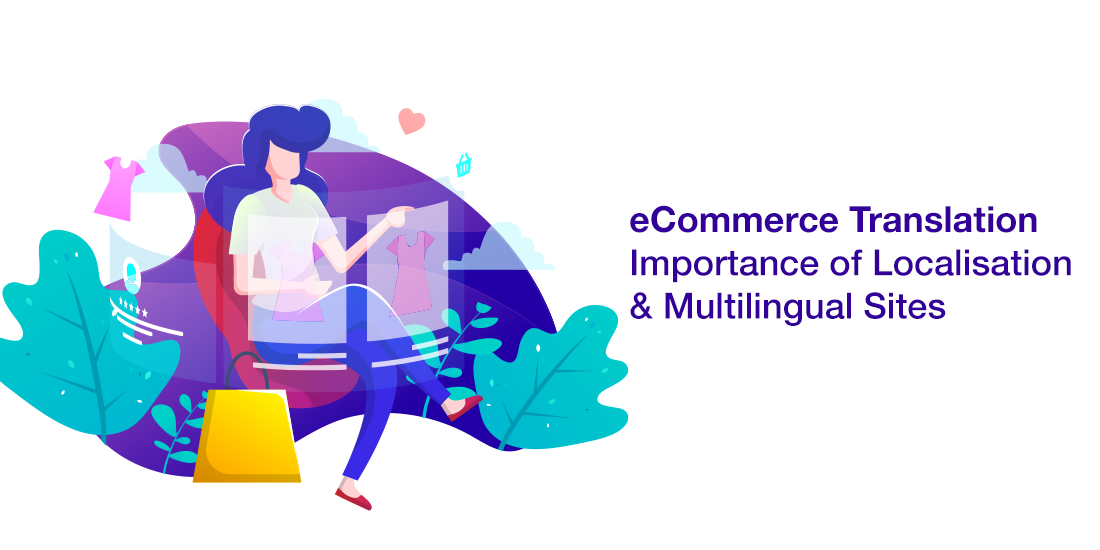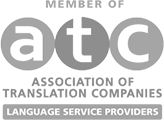The worst online shopping experience a customer can have is when they can’t even understand what a website is saying! Most online shopping platforms in Singapore are in English. But if you’re hoping to increase and maximise your potential customer base, your website should be multi-lingual with proper ecommerce translation.
If you have an online store or run a business with a website, this article would help you understand how having your eCommerce store or website translated can bring about more revenue.
The eCommerce Trend Is Now A Norm
What seemed to be “new” and a “trend” is now just another thing we see on the daily. Setting up an online business is more ubiquitous than ever before which means competition is getting tougher too.
The number of digital buyers worldwide was expected to reach 1.92 billion in 2019, accounting for a quarter of the world population. This number was at 1.32 billion in 2014 and is estimated to reach 2.14 billion by 2021. Reasons like convenience and cost-savings are prompting people to adopt eCommerce, while factors like faster Internet speeds and cheaper devices are facilitating this process.
It is also expected that the most growth in the eCommerce sector would be in India and Indonesia. The largest eCommerce company, Amazon, has already paved its way into India’s market by tapping into the languages with the highest number of speakers such as Hindi, Bengali, Marathi, Telugu, Tamil, Gujarati, Urdu. Just imagine how much potential growth this industry has!
This news sounds great and all but if you’re trying to make money through eCommerce, you’ll need to stand out. One way is by getting eCommerce translation for your business.
How Can eCommerce Translation Increase Your Revenue
User experience or UX, in short, is one of the fundamentals in optimising your conversion rate. This is known as Conversion Rate Optimisation or CRO.
On top of fast page loading time, neat and clearly structured layout, and a website that functions properly, ensuring that it is mobile-optimised, and the language of the site will be another major factor that can boost sales as well.
As we shared earlier, India and Indonesia are growing markets. But let’s not forget the market closer to home — the 74.2% of Singapore’s population — the Chinese people. Even the older generation is getting comfortable with buying online, using social media, and surfing the web.
By getting eCommerce translation services done for your site, you can sell to people in and out of Singapore who prefer reading their native languages such as Chinese, Malay, and Tamil.
When they can fully comprehend your product or service, the checkout process, the upsells, payment methods, and other shipping or refund policies that a customer would be interested in, you can easily win their trust and boost conversion rates through the roof.
Is Google Translate Enough for eCommerce Translation?
Google translate doesn’t disappoint most of the time. However, when it comes to eCommerce translation or website translation, Google might not be able to pick up every word and translate it.
It is using the power of Artificial Intelligence (AI) anyway. And because of this, the translation might not be as natural as you’d hope for it to be. The tone and style that your brand projects itself may get lost in translation. Plus, Google Translate does not recognise slangs and can translate things wrongly in return.
Confusion in your customers is the last thing you want as that kills a sale.
Therefore, Google Translate does wonders for a very black-and-white type of article or if you key the words directly into it. But we wouldn’t be the first to say that it is better to have a professional translator do that for you instead.
What Languages Should My eCommerce Website Have?
First and foremost, the original language would be needed. In this case, we’ll put it as English. Then, you’ll want to include the Chinese language as well due to the fact that the Singapore population is mainly made up of Chinese people. You’ll need to consider a few factors when hiring an English-Chinese translator and one of them is if you need it to be in Traditional or Simplified Chinese and British or American English.
Once you have the two down, and you wish to scale your business to markets of different languages, simply get another translator to do the job for you.
Looking for a professional translator for your eCommerce website? Contact us and find out how we can help your business today.









